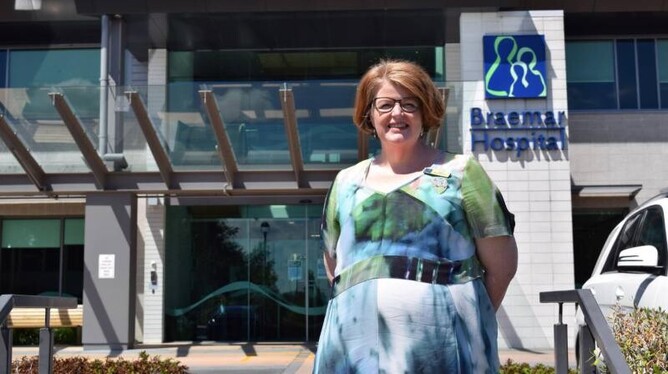Really proud to share this shareholder moment. Congratulations Braemar Hospital. This move underpins our values, our guiding principles of addressing inequities and strengthens our collective drive to improve health outcomes in our community.
Braemar Hospital in Hamilton has become the first hospital in New Zealand to become an accredited living wage employer.
It’s one of the largest private hospitals in New Zealand, and announced on Sunday it would begin paying its lowest-paid workers - including cleaners, clinical sterile services housekeepers, kitchen staff and contracted staff – at least the living wage rate of $22.75 an hour - $2.75 above the current minimum wage set by the Government in April last year.
The move comes in the wake of public sector allied health workers having to call off a strike after an Employment Court ruling.
The living wage is calculated annually by the New Zealand Family Centre Social Policy Unit. It was introduced in 2012 as a way of tackling poverty and inequality and is based on a range of measures including the cost of food, housing, transport, and childcare.

Cleaner Bhawna Prasad “immediately took a screenshot” to send to her husband when she found out about Braemar Hospital’s living wage plan.
The wage is calculated to be 68 per cent of average hourly earnings in New Zealand, which were $34.20 as at January 2021.
Braemar chief executive Fiona Michel said the living wage decision reflected the hospital’s commitment to its population and to the values of those who worked there.
“We are a charitable organisation fully owned by the Braemar Charitable Trust whose whole ethos is about doing good works to improve the health of the community. So that has to start at home.
“You have to make sure you are not party to the working poor phenomena when there is a clearly researched link between poverty and poor health outcomes.”
123RF
New Zealand’s living wage is currently calculated to be $22.75 an hour (file photo).
Braemar employs 260 staff. The wage increase applies to around 13 per cent of the predominantly female workforce.
“Financially, I wouldn’t want to put a hard number on the cost. It’s not insignificant. It is a conscious decision because we value our people,” she said.
“If you have a workforce that is well and well looked after they generate new value all by themselves. I hope our position will attract other, really talented staff.”
Bhawna Prasad, who works early shifts cleaning laboratories and offices at the hospital before picking up her 7-year-old daughter from school, said it will help her family to dream and plan for the future.
“I immediately took a screenshot and sent it to my husband,” she said.“He was happy too. It was exciting.”
Currently, more than 300 businesses and organisations are accredited living wage employers. The Government announced last year some of its lowest paid workers, including contractors in the cleaning, catering and security guard sectors would move to a living wage from December last year.
In 2019, the then-Waikato District Health Board resolved to give 700 workers earning less than the living wage a support package, as opposed to a wage hike.
The programme offers support to study health and wellbeing, life insurance, and money management skills.
The Hamilton City Council adopted the living wage in August 2020, which gave about 200 staff on the minimum wage a $2.10 increase in their hourly rate.
Clarification: This story’s heading has been updated to clarify that Braemar is the first hospital accredited with paying the living wage. Hamilton’s Anglesea Hospital said it had been paying more than 100 staff at least the living wage for several years but had not proceeded with accreditation due to time and cost.
